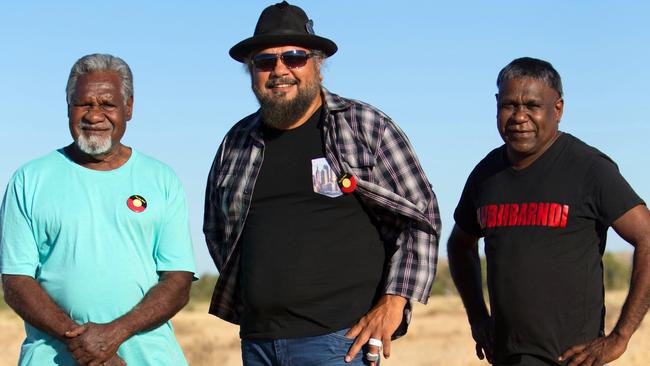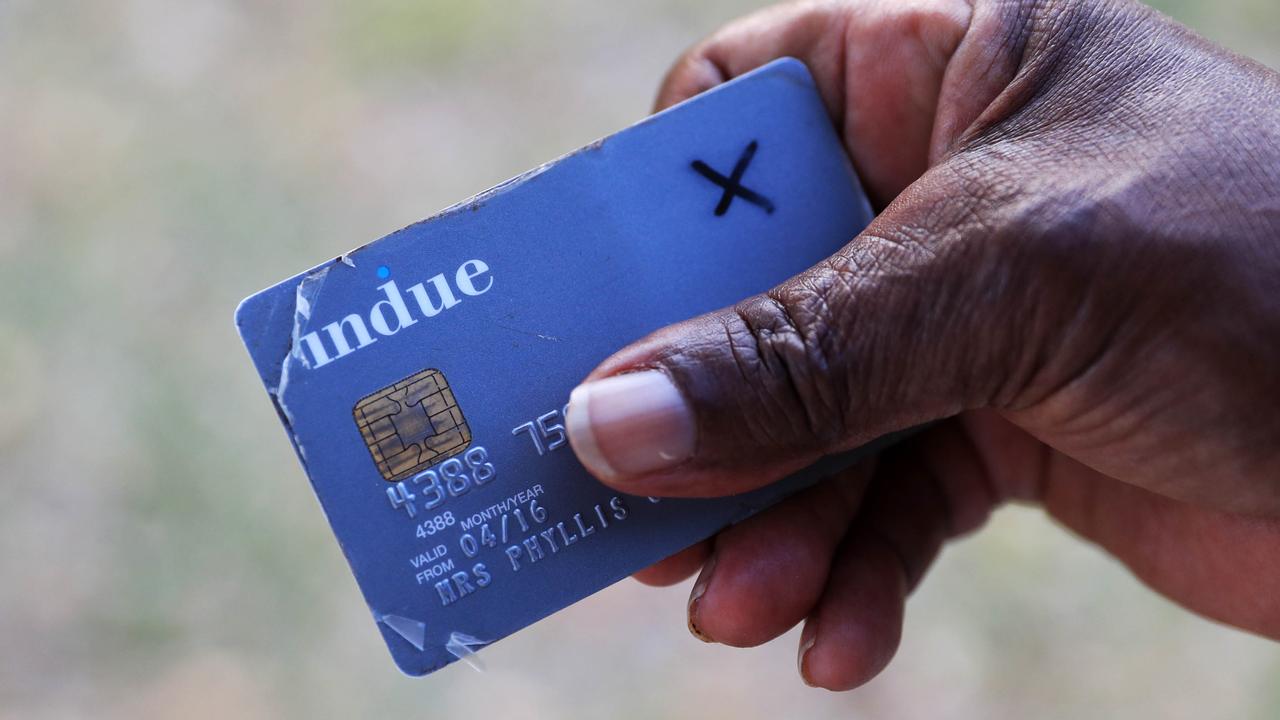Fortescue up for ‘astronomical’ sum
Andrew Forrest’s Fortescue Metals Group is facing a huge compensation claim after a historic native title rights ruling.

Andrew Forrest’s Fortescue Metals Group is facing the threat of an “astronomical” compensation claim after a court ruled that an indigenous group in the Pilbara had exclusive native title rights over land on which the company built a multi-billion-dollar iron ore mine.
In a historic judgment after one of the nation’s longest-running and most controversial native title cases, Federal Court judge Steven Rares found in favour of the Yindjibarndi people, who have been at war with Fortescue over royalties and land access since 2007.
Speaking in his home town of Roebourne as he celebrated yesterday’s legal victory, Yindjibarndi Aboriginal Corporation chief executive Michael Woodley told The Australian he wanted to use any compensation money to address the shocking living conditions of his people.
“Those funds will go into a trust that would go toward assisting some of our social challenges, improving our living conditions and providing opportunities around education, training and employment,” Mr Woodley said.
It was unclear last night whether Fortescue would appeal, but the company told the Australian Securities Exchange it believed the case would have no “material” financial impact and output from its Solomon mine would be unaffected.
Fortescue’s share price fell by 3.5 per cent after news of the judgment broke, closing at $5.19.
Mr Forrest, who has established a reputation as a champion of Aboriginal rights, declined to comment. The billionaire has long argued that paying indigenous people too much in cash for access to their land is akin to “mining welfare’’.
But he has come under fierce attack over his handling of the bitter dispute with the Yindjibarndi, including over Fortescue’s backing of a splinter group to attempt to seize control of the YAC.
Mr Woodley said yesterday Fortescue had been aware for years that his people would seek compensation if they were able to prove they had exclusive native title rights over the 2700sq km area. He said the size of the claim would be “astronomical”, as it would be based on a percentage of revenues generated at the Solomon project since it began producing iron ore in 2013.
Based on industry-standard royalty rates, the Yindjibarndi could be entitled to more than $100 million for the past four years of mining on their land. On current prices, such an agreement would also deliver annual royalties of about $20m a year.
Mr Woodley offered an olive branch to Fortescue, saying he was open to negotiating an agreement for royalties from Solomon to be paid to traditional owners.
“I’ve told Andrew Forrest and (Fortescue chief executive) Nev Power that the door is always open for them to come back and work out an agreement through a respectful negotiation process,” he said. “But if they don’t do it, we’ll have no choice but to launch a compensation claim.”
In his decision, Justice Rares found the Yindjibarndi were entitled to exclusive native title rights over all unallocated crown land in the claimed area and the Yandeeyara Reserve, except for a small area occupied by Rio Tinto’s Tom Price railway.
“That is because I am satisfied that the Yindjibarndi established … that a manjangu (or stranger) still has to obtain permission from a Yindjibarndi elder before entering or carrying out activity on Yindjibarndi country,” he said.
The YAC rejected Fortescue’s compensation offer of $4m a year for access to its land — an amount well below the industry norm. The company was later able to proceed with the mine without signing a land-use deal with the Aboriginal representative body.
Fortescue instead funded a rival group, the Wirlu-Murra Yindjibarndi Aboriginal Corporation, which broke away from the YAC and has won lucrative contracts on the Solomon project.
In 2015, evidence given to the Federal Court showed Fortescue had covertly arranged a meeting of the Yindjibarndi people aimed at removing Mr Woodley and his allies as leaders of the YAC.
Justice Rares found at the time the notice of meeting was “calculated to mislead” because the Yindjibarndi people were unaware they were voting to give up exclusive possession of their land.
Fortescue has rejected suggestions that it sought to influence the outcome of the meeting.
West Australian Aboriginal Affairs Minister Ben Wyatt congratulated the Yindjibarndi people.
“The Yindjibarndi have proven themselves to be determined and committed advocates in their pursuit of exclusive possession and have won today in the face of not insignificant obstacles over many years,” he said. “Like many other litigated areas of native title, this has been a difficult and drawn-out process for the Yindjibarndi people, and has caused fractures within their community.
“However, today’s result is a tremendous victory for the Yindjibarndi people and I hope they are able to unite and work together to ensure that they are able to utilise their now recognised native title rights to benefit all members of the Yindjibarndi community.’’
Yesterday’s decision, handed down in Sydney, was relayed via video link to Perth and Roebourne, where cheers eruptedas the outcome became clear.



To join the conversation, please log in. Don't have an account? Register
Join the conversation, you are commenting as Logout